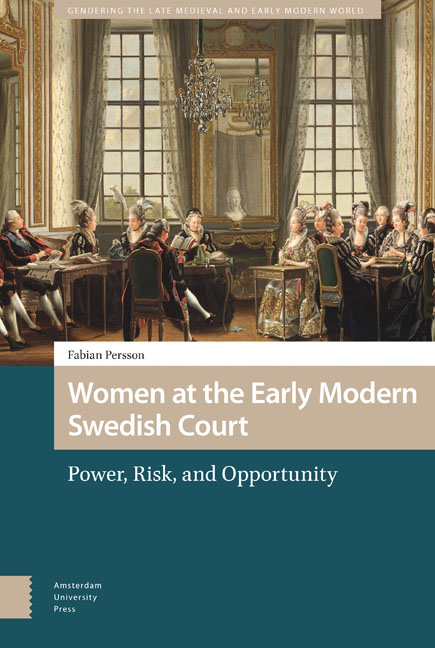2 - Why be at Court? The Example of the Königsmarcks
Published online by Cambridge University Press: 15 April 2021
Summary
Abstract
The Königsmarcks belonged to the highest echelons of the aristocracy, but they also possessed buckets of what Pierre Bourdieu has called ‘cultural capital’, essential to keeping one's place in any societal hierarchy. Bourdieu's experiment with the concepts of field and habitus, and how access to one or both can be gained, is revealing. Clearly Aurora von Königsmarck and her siblings had acquired a startling amount of cultural capital, which was invaluable in their social manoeuvrings. This cultural capital was then deployed in order to gain access to members of the royal family.
Keywords: cultural capital, network, noblewomen, manners
Many early modern aristocratic families were vast networks, covering political allies, friends, servants, and officials as well as immediate family and distant relations. While medieval magnates had been relatively independent, early modern aristocrats had to wield influence through the machinery of monarchy. This was presented by Norbert Elias as the absolute monarchies turning overmighty subjects into loyal courtiers, an interpretation applied to a number of early modern monarchies. As the overarching narrative of the increasing power of the early modern ruler and central government has not been questioned, significant adjustments have yet been made to this picture. The influence wielded by early modern monarchs could certainly be an opportunity for the aristocracy. If aristocrats managed to harness this vastly increased power they stood to benefit. Neil Cuddy has demonstrated how noblemen close to Charles I could reap huge rewards by leveraging royal favour – and Linda Levy Peck has shown how this was the subject of a lively discourse – while Dries Raeymaekers has illustrated how access to a ruler worked in the intricate context of the court of the Archdukes at Brussels.
Stability can be overemphasised, though. If stability was at the heart of early modern political discourse, reality still forced its way in. This was a time when aristocrats had to adapt to several revolutions in Britain, for example, and in other European countries the political elite was partly dispossessed by absolutist power and the rise of bourgeois bureaucrats. Aristocrats in countries such as Brandenburg had to adapt to a new political landscape. The polity of many early modern monarchies had to be adaptable, with the consequence that flexibility was a survival skill.
- Type
- Chapter
- Information
- Women at the Early Modern Swedish CourtPower, Risk, and Opportunity, pp. 59 - 74Publisher: Amsterdam University PressPrint publication year: 2021



